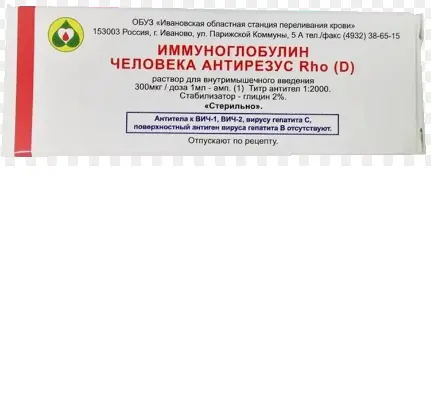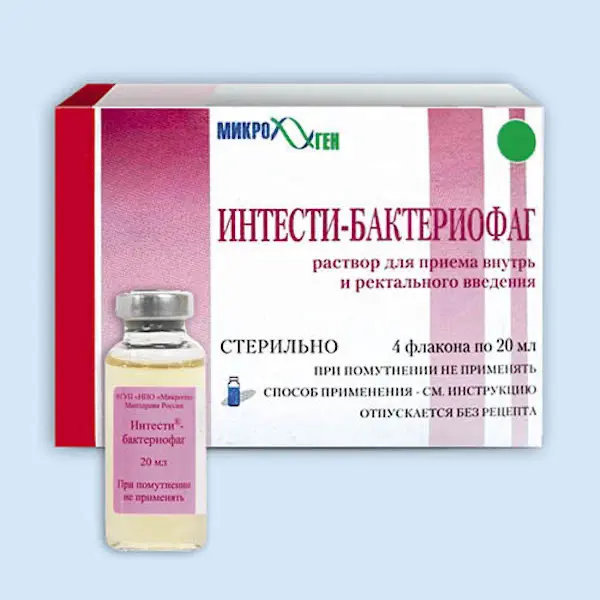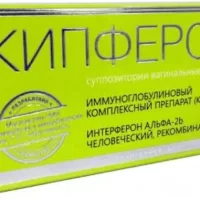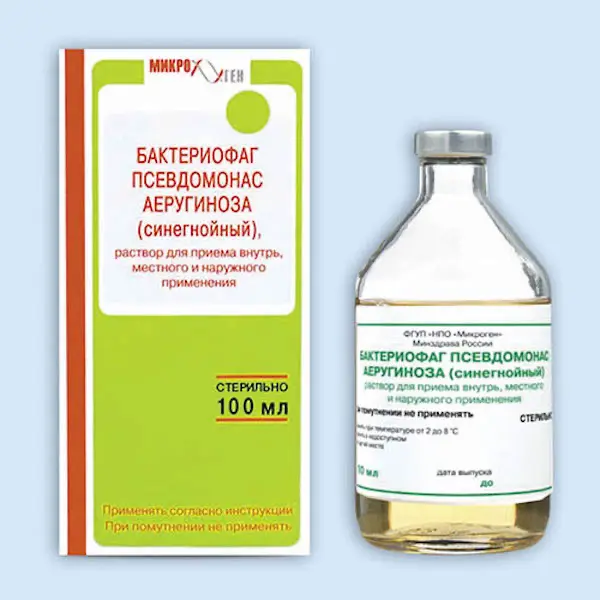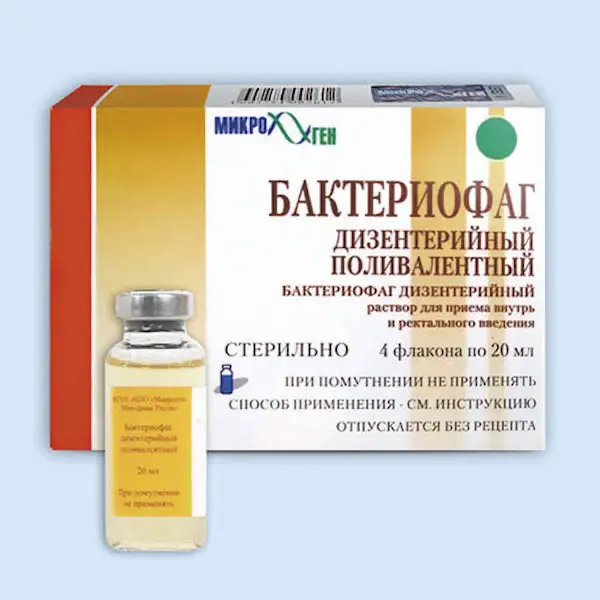Description
Immunoglobulin Anti-Rhesus Pharmacodynamics
The preparation is immunologically active protein fraction isolated from human plasma or serum of donors tested for the absence of antibodies to human immunodeficiency virus (HIV-1, HIV-2), hepatitis C virus and surface antigen of hepatitis B virus.
The active component of the drug is immunoglobulin G containing incomplete anti-Rho(D)-antibodies. The drug prevents rhesus sensitization (formation of anti-Rho(D)-antibodies) during pregnancy in rhesus-negative women who gave birth to Rho(D)-positive children or who underwent artificial termination of pregnancy when the husband is Rho(D)-positive.
Indications
The drug is used only on prescription.
Human anti-Rho(D) immunoglobulin is used for the prevention of rhesus conflict in rhesus-negative women who are not sensitized to the Rho(D) antigen (i.e. (i.e. have not developed Rh antibodies) in case of: pregnancy and birth of Rh-positive children, in case of induced and spontaneous abortion, in case of ectopic pregnancy termination, at any stage of pregnancy termination, after amniocentesis and other procedures connected with the risk of penetration of fetal blood into the maternal bloodstream, and also after injuries of abdominal cavity.
Contraindications
The administration of human anti-Rho(D) immunoglobulin is contraindicated in Rh positive women giving birth; Rh negative women giving birth who are sensitized to the Rho(D) antigen (with Rh antibodies detected in the serum).
Dosage and administration
- Human anti-Rhesus immunoglobulin Rho(D) is administered intramuscularly only.
Before injection, vials with the drug are kept for 2 hours at room temperature (20±2) °c. In order to avoid foaming the drug is filled into the syringe with a needle with a wide clearance. The drug shall not be stored in an opened ampoule. - One dose (300 mcg) corresponds to 1 ml with antibody titer 1:2000 or 2 ml with antibody titer 1:1000.
- During pregnancy in rhesus-negative women without sensitization symptoms, nonsensitizing desensitizing therapy is used for 10-12, 24-25, 32-33 weeks of pregnancy. Anti-Rho(D) human immunoglobulin is given as a single dose (300 mcg) intramuscularly.
For Rh(+) (positive Rh factor) of the husband’s blood, immunoglobulin Rho(D) 300 µg intramuscularly at 28-30 weeks’ gestation. - Re-injection of immunoglobulin no later than 48-72 hours after delivery at the birth of a Rh-positive baby.
- In case of induced termination of pregnancy at the term of pregnancy over 13 weeks, it is recommended to administer one dose of the drug (300 mcg). If pregnancy is terminated at less than 13 weeks, it is recommended to administer 50 mcg of the drug.
- One dose (300 mcg) is recommended for abdominal trauma in the second or third trimester of pregnancy.
- If abdominal trauma requires administration at 13-18 weeks of gestation, another dose (300 µg) should be given at 26-28 weeks of gestation.

